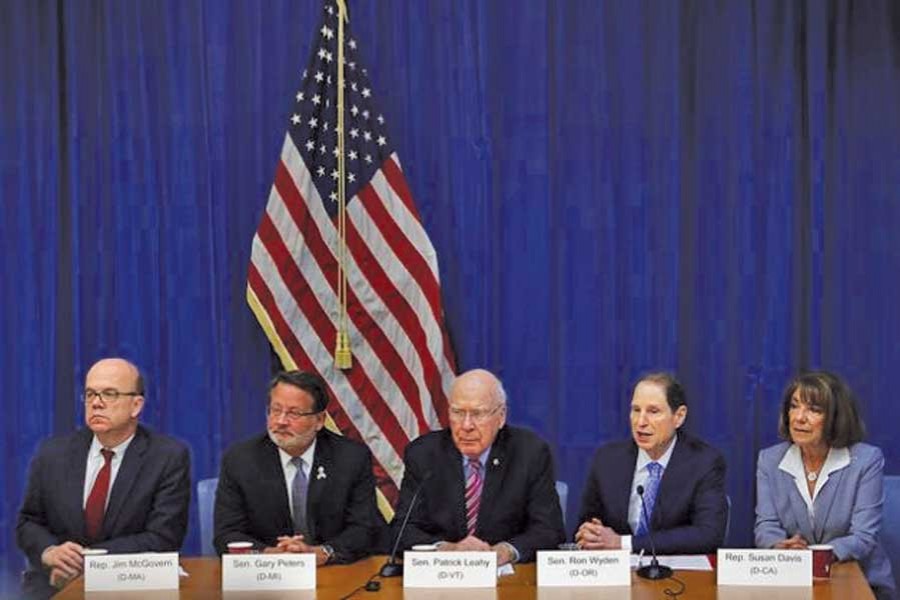Cuba's tense relations with the United under the administration of Donald Trump reflect a scenario of conflict that is not alien to the generation that will take over the country on April 19, when President Raúl Castro is set to step down.
Since the 1960s, Cuba's nationalist stance has drawn on the animosity with the US, and the likely successors of the country's current leaders, most of whom were born around the time of the 1959 revolution or afterwards, were educated in a culture of "anti-imperialist resistance".
According to the official figures on the outcome of the March 11 general elections, the average age of the new members of parliament fell to 49 years, compared to 57 years for the outgoing lawmakers.
The single-chamber National Assembly of People's Power elects from among its members the 31 members of the Council of State, which according to the constitution is the highest representative of the Cuban state, whose president is the head of state and government.
The most likely candidate to succeed Castro is the current first vice president, Miguel Diaz-Canel, 57, although there is no official confirmation.
The return to the tension that existed before the détente agreed by Raúl Castro, 86, and Barack Obama (2009-2017) on December 17, 2014, which led to the restoration of diplomatic relations between Washington and Havana, brings additional difficulties to the weakened Cuban economy and puts a brake on the changes required by its socialist model of development.
"Unfortunately, reform in Cuba becomes more difficult when the United States is more aggressive and negative," said John McAuliff, executive director of the Fund for Reconciliation and Development, a US-based non-governmental organization (NGO) that supports efforts for reconciliation with Cuba.
In his opinion, a new generation of leaders "opens a door, but it does not guarantee" how quickly change will come. "If the new leaders expand opportunities for the self-employed and small businesses, especially in tourism and other professional sectors, the economy will improve," he told IPS from the US by e-mail.
In the same vein, he said that "if the public dialogue incorporates all the sectors that are not explicitly counterrevolutionary inside and outside the country, politics will expand, evolve and be strengthened along with Cuba's history and culture."
Trump's adverse policy towards Cuba since his arrival at the White House in January 2017 has kept bilateral ties at their lowest level, with a skeleton staff at the two embassies, which are unable to carry out their consular and business duties, while it has restricted travel by US citizens to the Caribbean island nation, among other limitations.
Washington justifies the reduction of personnel and the recommendation to US citizens to refrain from travelling to Cuba by citing mysterious attacks - apparently linked to high-pitched sounds - that affected the health of US and Canadian diplomats in Cuba between November 2016 and August 2017.
Havana has denied any involvement in the incidents.
In a December 22 speech in the Cuban parliament, Castro accused the United States of fabricating "pretexts" to justify the return to "failed and universally rejected policies."
US lawmakers who visited Cuba between February 19-21, led by the Democratic Senator for the state of Vermont, Patrick Leahy, said the measures ordered by Trump were a serious mistake, harmful to the governments and people of both nations.
In defiance of the travel advisory against Cuba, the legislators flew here with their wives, and in the case of Leahy, with his 13-year-old granddaughter. The group met with Castro and other local authorities.
"Cuba is changing. Soon you will elect a new president and likely experience a generation shift in leadership, and regrettably at this historic moment in Cuban history, the US engagement is limited," Jim Mcgovern, a Democrat member of the US House of Representatives, representing Massachusetts, lamented in a press conference.
In turn, Senator Ron Wyden, of Oregon, reported that there is a legislative proposal against the embargo brought forward by him and other senators, which has strong bipartisan support. "After the November elections, we will have more support to end the embargo," he said.
Meanwhile, migrants are among the biggest losers in the embassy conflict, although the Cuban embassy in Washington, with 17 fewer staff members, says it has maintained its usual services, including consular services for Cubans and Americans.
But the reduction of personnel in the US embassy in Havana forces Cuban immigrants to travel to Colombia to process their visas, which will prevent Washington in 2018 from meeting its commitment to issue 20,000 visas a year, as established in the migration agreements of 1994 and 1995.
The main recipient of Cuban emigration is the United States, where over two million people of Cuban origin reside, of whom almost 1.2 million were born in Cuba, according to official data from the US. A good part of that population has not cut its umbilical cord with Cuba.
-Inter Press Service


